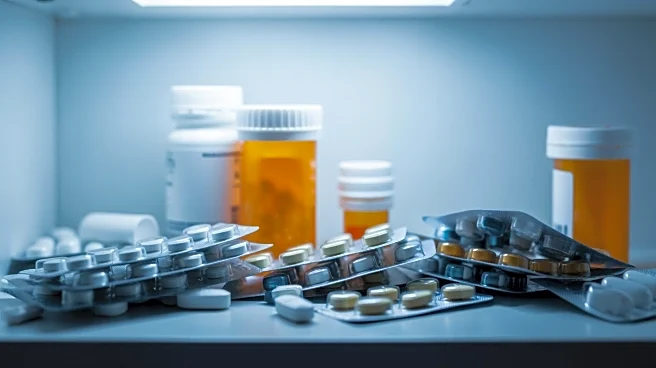What's Happening?
A recent study published in Clinical Epidemiology and Global Health has revealed that nearly 80% of Bhubaneswar residents engage in self-medication, a practice that poses significant health risks. The study, conducted from 2017 to 2020, highlights the
prevalence of self-medication among younger individuals and those from higher socioeconomic backgrounds. The trend is driven by factors such as the ease of obtaining medications without prescriptions and the influence of internet and social media as sources of health advice. The study warns of potential public health crises due to indiscriminate use of antibiotics and other medications, which can lead to resistance and adverse reactions. Experts advocate for education and awareness campaigns to inform the public about the risks associated with self-medication.
Why It's Important?
The high rate of self-medication in Bhubaneswar is concerning as it can lead to severe health complications and contribute to antibiotic resistance, a global health issue. The practice is prevalent in economically deprived regions where healthcare access is limited, but Bhubaneswar's rate is significantly higher than the national average. This underscores the need for intervention to prevent a public health crisis. The study suggests that punitive measures may not be effective, and instead, emphasizes the importance of educating the public about the dangers of self-medication. Addressing this issue is crucial for improving healthcare outcomes and reducing the burden on medical facilities.
















